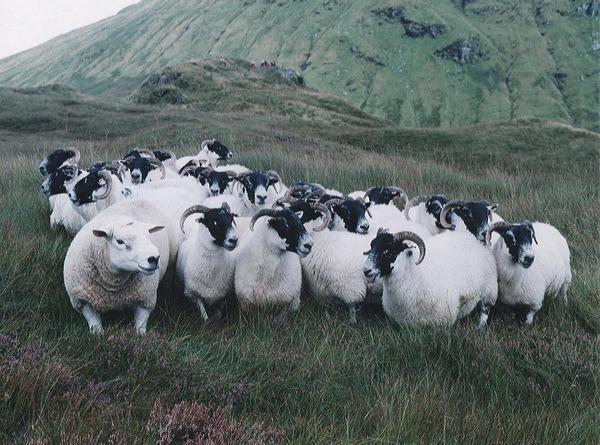£7m award aids farming in challenging landscapes
Scientists are collaborating to develop improved breeding selection of small ruminants in tough conditions.

Researchers are seeking to improve breeding of sheep and goats in challenging environments such as mountainous landscapes, in humid conditions or with poor foraging.
The international project involving Roslin researchers aims to develop ways to apply genetic selection to improve resilience and efficiency in small ruminants.
Hardy livestock
Their approach may enable efficient farming of sheep and goats, which are naturally resilient to nutritional deficiencies and diseases, in regions where no other livestock or crops can be raised.
The project, SMAll RuminanTs breeding for Efficiency and Resilience (SMARTER), is coordinated by the National Research Institute for Agriculture, Food and the Environment (INRAE), involves 27 partners from 13 countries around the world, and is funded by the European Union’s H2020 research and innovation programme.
Domesticated small ruminants such as sheep and goats may be the only source of livelihood for farmers in less favourable environments.
Additionally, they may graze in open land, improving biodiversity and preventing fire damage in dry areas.
Genetic selection may enable better use of available resources.
Preferred traits
Researchers will seek to identify novel traits linked to efficiency and resilience traits in animals, and work towards developing tools and selection strategies.
Scientists will focus on characteristics linked to wellbeing and health as well as those linked to efficient feeding on pasture, foraging, or supplements.
Raising hardy animals such as sheep and goats is an efficient way to use farmland that is otherwise poor. By developing tools and techniques to enable us to select for resilience in sheep and goats, we can use available resources to best effect and help safeguard these landscapes.
**The Roslin Institute receives strategic investment funding from the Biotechnology and Biological Sciences Research Council and it is part of the University of Edinburgh’s Royal (Dick) School of Veterinary Studies. **


